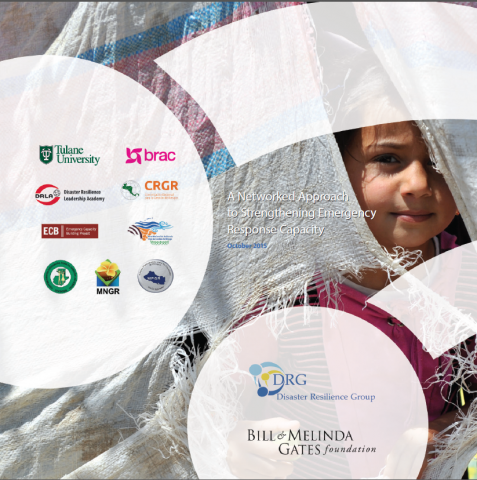A Networked Approach to Strengthening Emergency Response Capacity


Over the past decade, the global humanitarian agenda has moved from saving lives and providing basic services in emergencies toward building resilience to crises. However, the recent Ebola outbreaks in West Africa and ongoing crises in countries such as Syria, Somalia, and the Central African Republic have exposed weaknesses in humanitarian emergency response (ER). This has prompted reflection on better ways not only to address disaster risks but also to build the ER capacity of humanitarian actors and affected communities.
A Networked Approach to Strengthening Emergency Response Capacity, draws lessons from international and local networks and offers recommendations for building capacity among first- and second-line responders and strengthening networks for emergency response.
Tulane University’s Disaster Resilience Leadership Academy, 2015.
Online Report
http://tulane.edu/drla/drla-drg-networked-approach.cfm
